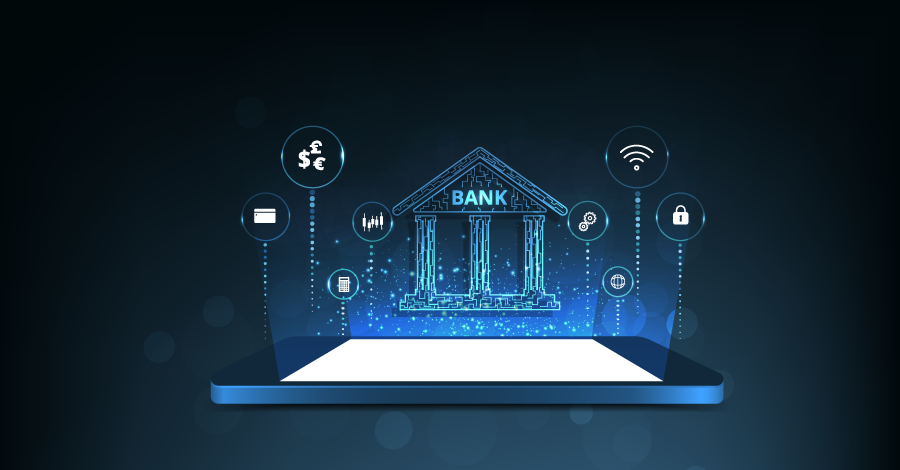The Digital Banking Revolution in Bangladesh
Over the past decade, Bangladesh’s banking landscape has undergone a seismic shift. What was once a predominantly cash-driven economy is now witnessing a surge in digital banking adoption, reshaping how people save, borrow, transact, and invest. From mobile financial services (MFS) to digital wallets and AI-driven customer service, Bangladesh is rapidly transforming into a tech-enabled financial ecosystem.
In this blog, we explore the key drivers, current trends, challenges, and future opportunities in Bangladesh’s digital banking revolution, along with how businesses and global investors can tap into this fintech evolution.
1. The Rise of Digital Financial Services (DFS)
Bangladesh’s digital journey in banking was jumpstarted by the massive success of mobile financial services. Services like bKash, Nagad, Rocket (by Dutch Bangla Bank), and Upay revolutionized payments and micro-transactions across rural and urban areas alike.
According to Bangladesh Bank, over 110 million MFS accounts are active in the country, facilitating more than Tk 2,000 crore in daily transactions. These platforms offer:
-
Peer-to-peer (P2P) transfers
-
Utility and merchant payments
-
Mobile top-ups
-
Government aid disbursement
-
Salary payments for RMG workers
The popularity of MFS has set the stage for deeper financial inclusion, particularly among the unbanked population.
2. Banks Are Going Digital—And Fast
Traditional banks in Bangladesh are now embracing digitalization to remain competitive. Leading banks such as BRAC Bank, City Bank, and Eastern Bank Ltd. (EBL) have rolled out comprehensive digital banking apps like:
-
Astha by Eastern Bank
-
Citytouch by City Bank
-
bKash integration with BRAC Bank
These platforms offer full-scale banking services including:
-
Online account opening
-
Instant fund transfers (BEFTN and NPSB)
-
Fixed deposit creation
-
Digital loan applications
-
Investment and mutual fund access
💡 Check out: https://www.bracbank.com – A pioneer in integrating MFS with formal banking.
3. Fintech Startups Driving Innovation
The digital banking wave has encouraged the growth of fintech startups like:
-
Pathao Pay – integrating ride-sharing and financial transactions
-
iFarmer – offering digital financing to smallholder farmers
-
ShopUp – enabling digital lending for SMEs
These ventures leverage big data, AI, and mobile technology to provide credit scoring, risk analysis, and targeted financial products that traditional banks have long struggled to offer.
Bangladesh is now regarded as an emerging fintech hotspot in South Asia, attracting both local and foreign venture capital.
4. Regulatory Support Accelerating Growth
The role of the Bangladesh Bank (BB) and government initiatives in shaping this revolution cannot be overstated. Key regulatory advancements include:
-
Guidelines for Agent Banking: Over 20 banks now offer banking services via agents across rural regions.
-
QR Code Standards: Unified QR (uQR) system under Bangla QR initiative allows seamless digital merchant payments.
-
Digital Bank Licensing: In 2023, BB announced it will allow digital-only banks, with companies like bKash and Nagad expected to apply.
🌐 Source: Bangladesh Bank Circulars
5. Driving Financial Inclusion
The digital banking boom is narrowing the urban-rural divide. Thanks to agent banking, fintechs, and mobile access, more people now have access to:
-
Savings accounts
-
Microloans
-
Insurance products
-
Remittance channels
According to the Global Findex 2021 report, bank account ownership in Bangladesh rose from 31% in 2014 to 53% in 2021, largely due to digital innovations.
📌 Explore: https://bangladesh-agent.com – Supporting global businesses in tapping into Bangladesh’s expanding fintech and financial services ecosystem.
6. Security & Trust: The Next Frontier
Despite rapid growth, challenges remain—particularly in cybersecurity and digital literacy. Key concerns include:
-
Phishing and fraud incidents in mobile banking
-
Lack of awareness among rural populations
-
Data privacy concerns with new fintech players
The Bangladesh Bank is now working on frameworks for cyber risk monitoring, KYC digitization, and biometric authentication, in line with global standards.
7. Opportunities for Global Businesses
For foreign investors, technology providers, and banking software developers, Bangladesh’s digital banking boom presents immense opportunities:
-
White-label banking platforms for local banks
-
AI-driven customer support bots and CRMs
-
Digital KYC and identity verification tools
-
Cybersecurity solutions tailored for mobile-first markets
With a population of over 170 million and rising smartphone and internet penetration, the country is fertile ground for financial digitization partnerships.
🧭 Need help navigating partnerships? Bangladesh-Agent.com provides localized support, vendor vetting, and agent services to simplify your market entry.
8. The Future of Digital Banking in Bangladesh
Here’s what to expect next:
-
Full-fledged digital banks with no physical branches
-
Blockchain-based settlements and remittance channels
-
Open banking APIs for seamless third-party integrations
-
Digital taka (CBDC) being piloted by Bangladesh Bank
-
Greater role of AI and data analytics in financial products
As Bangladesh moves toward becoming a Smart Bangladesh by 2041, digital finance will be a core pillar of the journey. Policymakers, banks, tech firms, and agents must collaborate to ensure this transformation remains secure, inclusive, and sustainable.
